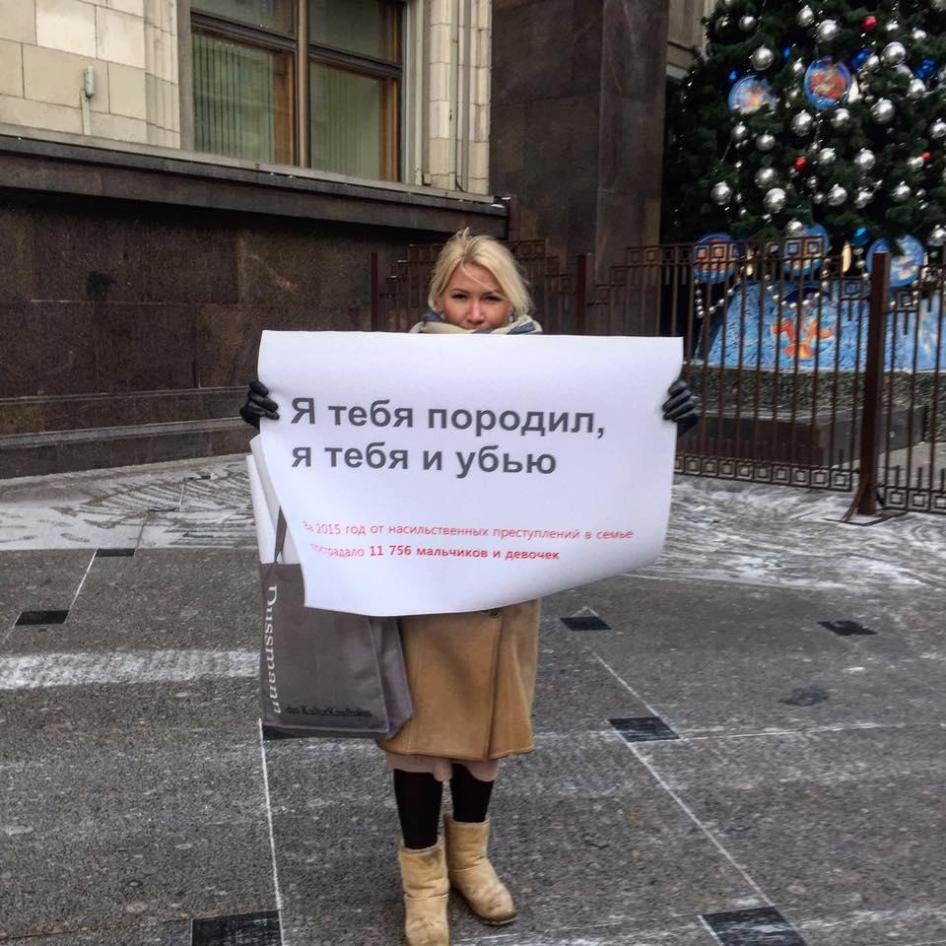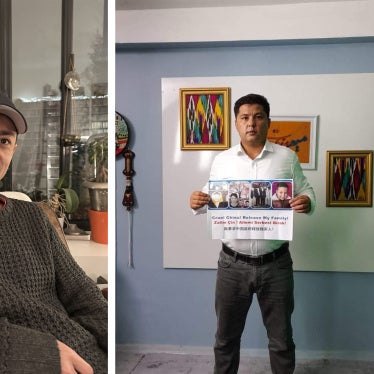Only after a year of abuse, when Marina fell out a second-storey window as her husband tried to strangle her, did she go to police in Russia. Even then – wheelchair-bound, with metal plates holding her smashed feet together – Marina said she had to beg police not to send her back home.
Domestic violence kills 12,000 women a year in Russia, or one every 40 minutes. Despite such grim numbers, last week Russian President Vladimir Putin signed a bill to decriminalize acts of domestic violence that don’t cause severe injuries, or are reported only once a year.
Within days, the mayor of Russia’s third largest city, Yekaterinburg, told the media that police had responded to twice as many domestic violence incidents as usual. “People got the impression that before it wasn’t allowed,” the mayor said. “But now it is.”
Russia’s parliamentarians voted 380-3 in favor of the bill. Opponents weren’t allowed to campaign publicly: Moscow’s mayor denied activists a permit to protest the law.
Some lawmakers argued that strong domestic violence laws contradict Russian “family values” and amount to state interference. MP Vitaly Milonov likened stronger laws to “lying in bed with your wife, and a lawyer, and some human rights organisation.”
Senator Yelena Mizulina said that a woman humiliating her husband is worse than a man beating his wife, and that parents should be allowed to beat their children.
But beating your wife or child is not a Russian “family value”; it’s a human rights abuse that has been ignored in Russia for too long.
In recent years, the UN has criticized the government for serious shortcomings in the protection of women and children.
Human Rights Watch research – including in Hungary, Turkey, and Kyrgyzstan – shows that fear of reprisals, impunity for attackers, and attitudes condoning violence all deter the reporting of domestic violence. Laws like the one Putin just signed add yet another obstacle.
If victims muster the courage to report abuse – whether the first incident or the fiftieth – it may be the only time they dare to come forward. Violence in the home often spirals: what starts as a slap or a shove may lead to severe beatings, choking, or other life-threatening acts, like what Marina faced. Failure to treat more minor incidents as possible crimes sends a dangerous signal, and makes violence more likely to escalate.
Marina is lucky: she escaped her abuser and is building a new life with help from one of Russia’s few shelters for victims. But Marina and others like her shouldn’t have to nearly die for the government to take their abuse seriously.









